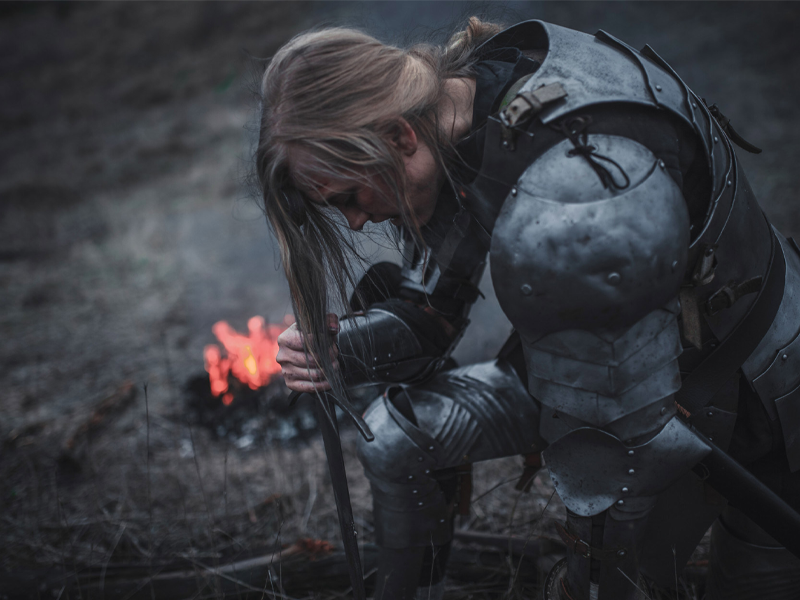Few historical figures have left as profound a mark as Joan of Arc. Born into a peasant family in 1412, she rose to become one of the most iconic and controversial figures of the Middle Ages. A teenager who led armies defied societal norms and ultimately faced a tragic end—Joan of Arc’s legacy continues to fascinate people centuries later. But who was she really? Was she simply a martyr for her faith, a warrior for her country, or something even greater?
The Warrior Who Defied Expectations
At just 17 years old, Joan of Arc emerged as an unlikely military leader during the Hundred Years’ War between France and England. Claiming to be guided by divine visions, she convinced Charles VII, the future king of France, to let her lead troops into battle. Her presence on the battlefield was nothing short of extraordinary. Though she never personally wielded a weapon, she inspired troops with determined confidence and strategic insight.
Under her leadership, French forces secured an important victory at the Siege of Orléans in 1429, turning the tide of the war in France’s favor. This success wasn’t just about military might—it was about belief. Soldiers and citizens alike saw Joan as a divine messenger, a symbol of hope in a war-torn nation. Her ability to rally men who had been demoralized by years of defeat was a testament to her special power.
A Martyr for Her Faith
Despite her battlefield success, Joan’s influence made her a target. In 1430, she was captured by the Burgundians, partners of England, and handed over to the English for trial. The charges against her ranged from heresy to cross-dressing—she wore male armor to protect herself from soldiers. These accusations, however, were merely a façade for a deeper political motive: eliminating a symbol that had become too powerful.
Joan’s trial was a sham. She was denied a fair defense, interrogated under duress, and pressured to renounce her claims of divine guidance. Yet, even in the face of death, she remained steadfast. In 1431, at just 19 years old, Joan was burned at the stake in Rouen, accused of heresy. But instead of erasing her influence, her execution cemented her status as a martyr. Decades later, the Catholic Church overturned her conviction, and in 1920, she was canonized as a saint.
More Than a Martyr or Warrior
Labeling Joan of Arc as merely a warrior or a martyr simplifies the depth of her influence. She was, above all, a visionary. Her courage went beyond the battlefield—it challenged the rigid structures of her time. A teenage girl leading armies was unheard of in the 15th century. A peasant influencing kings and nobles? Even more so. Her life wasn’t just about fighting a war but about reshaping what was possible.
Her legacy is one of defying expectations. She didn’t conform to the gender roles of her era, nor did she bow to the massive pressures of the church and state. Whether divine or psychological, her visions propelled her to become a symbol of conviction and resilience. Her story has been interpreted in countless ways—by feminists as a figure of empowerment, military historians as a strategic force, and religious communities as a beacon of faith.
Why Joan of Arc Still Matters Today
Joan of Arc’s story continues to resonate because it is timeless. In her, we see the power of belief, the power to stand against injustice, and the courage to follow one’s convictions no matter the cost. Her life is a reminder that history’s most influential figures aren’t always born into power—they are often those who refuse to accept the limits placed upon them.
From politics to personal struggles, her story inspires those who face adversity. She embodies the idea that one person, no matter how young or unconventional, can change the course of history. Whether viewed as a warrior, a martyr, or more, Joan of Arc remains an enduring symbol of faith, courage, and determination.
Final Thoughts
Joan of Arc was more than just a historical figure—she was a force of nature. Her name is still spoken with reverence, her story still studied, and her life still celebrated. Whether you see her as a warrior who fought for her country, a martyr who died for her faith, or a revolutionary who defied expectations, one thing is undeniable: Joan of Arc was and always will be, unforgettable.



